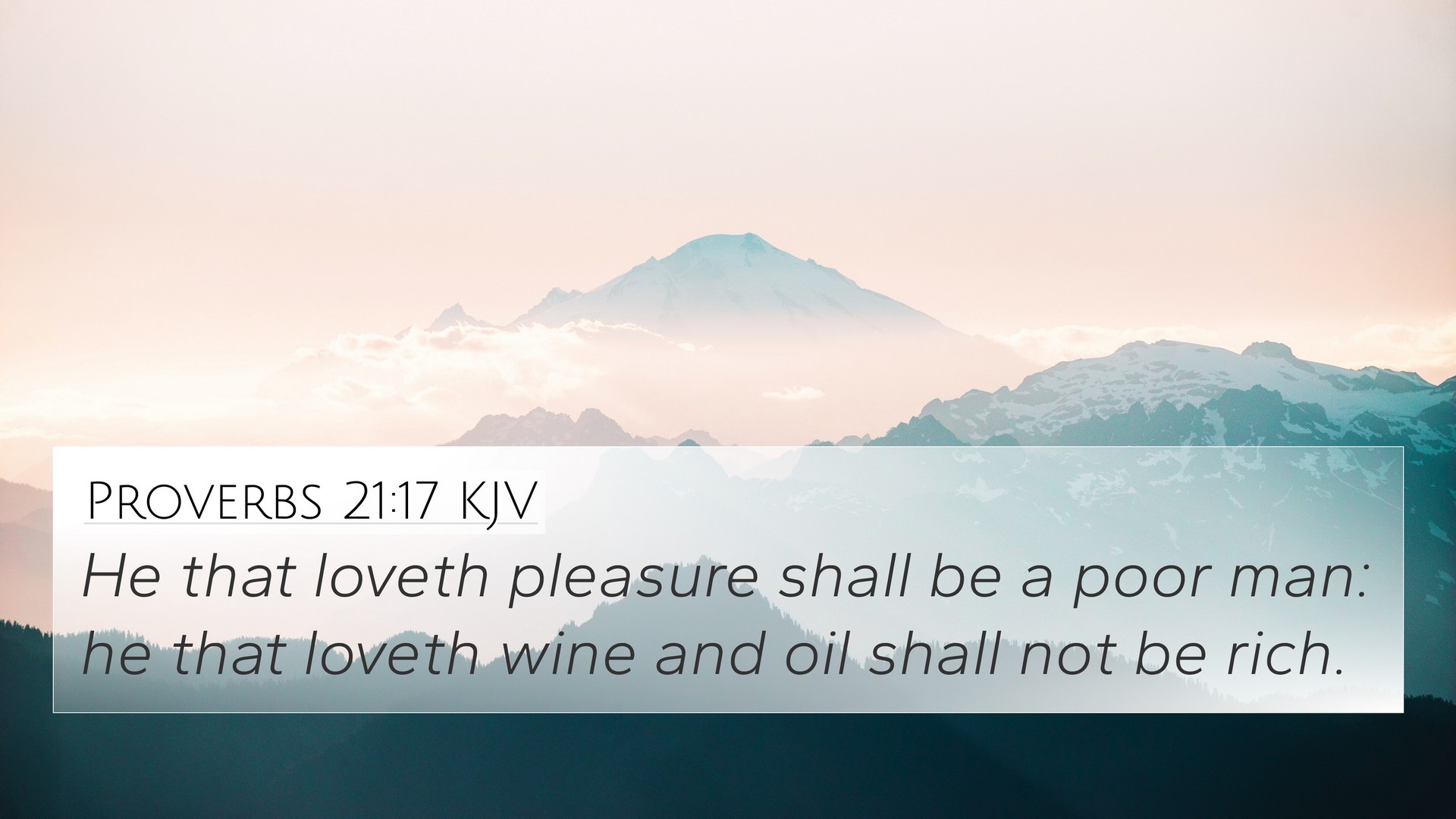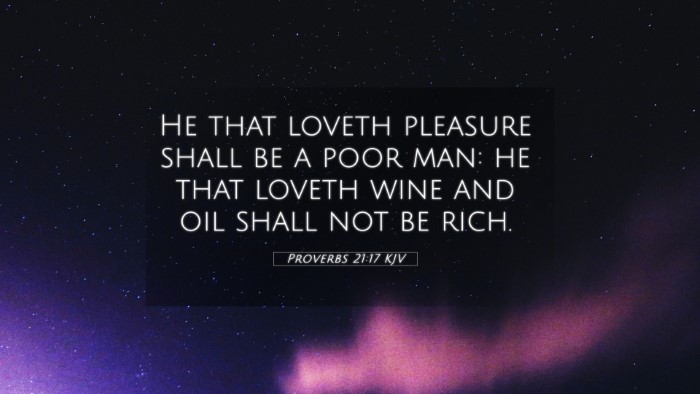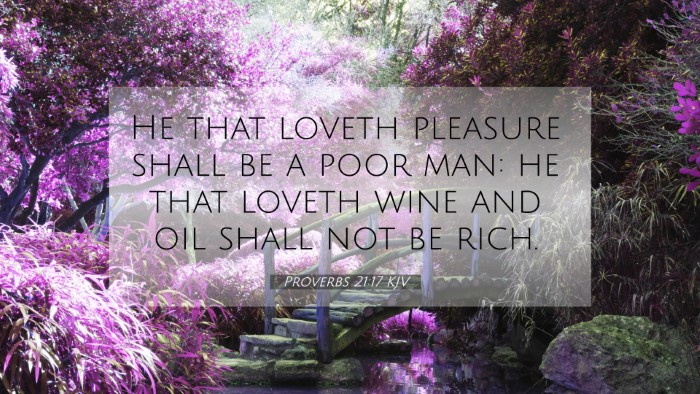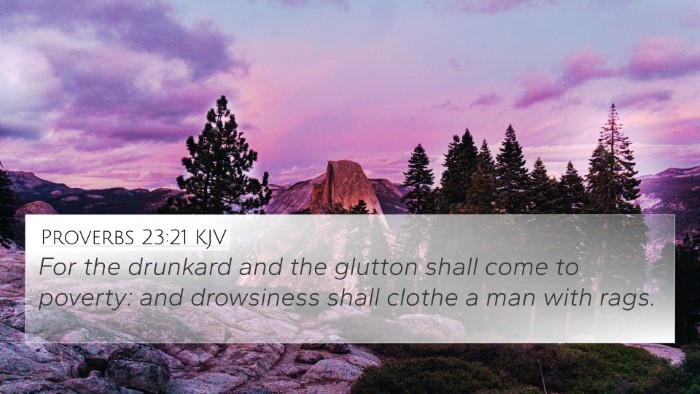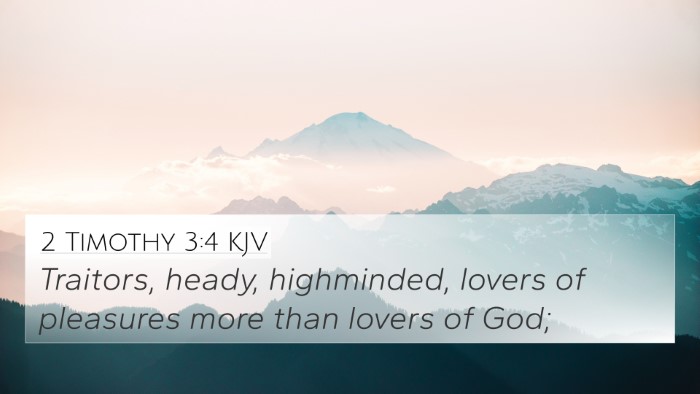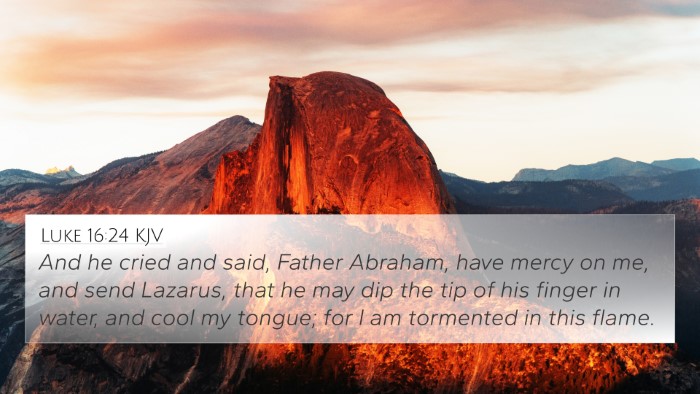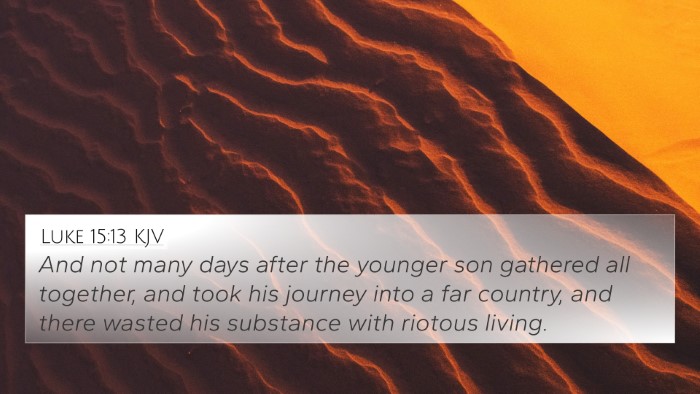Proverbs 21:17 - Summary and Meaning
Bible Verse: Proverbs 21:17 - "He who loves pleasure will become a poor man; he who loves wine and oil will not be rich."
The verse is a profound warning against hedonism and the pursuit of earthly pleasures. It highlights the inevitable consequences of a lifestyle driven by indulgence and excess. Below are combined insights from various public domain commentaries on this verse:
Meaning & Context
Proverbs 21:17 serves as a critical reminder that indulgence in pleasure and material excess can lead to poverty and lack. This saying aligns with the overarching message of the Book of Proverbs, which emphasizes wisdom, restraint, and the pursuit of righteousness over fleeting pleasures.
Matthew Henry outlines that the love of pleasure signifies an abandonment of prudence and responsibility. Those who prioritize enjoyment over diligence are likely to face financial hardship. His commentary indicates that loving pleasure leads not only to poverty in material terms but also spiritual emptiness.
Similarly, Albert Barnes elaborates that the verse draws a clear link between a life of ease and lack of diligence in one's affairs. He warns that those engrossed in excessive enjoyment — like wine and oil — are likely distracted from their work and responsibilities. The resultant lack of engagement in productive labor will ultimately lead to misfortune.
Adam Clarke interprets this verse in the light of socio-economic consequences, suggesting that a continual pursuit of pleasure can foster a lifestyle unsustainable both financially and morally. Clarke emphasizes that the excessive pursuit can strip one of wealth and security, leading to a cycle of need.
Bible Cross-References
This verse connects to several other scriptural passages that revolve around themes of pleasure, diligence, and their consequences:
- Proverbs 23:21: "For the drunkard and the glutton will come to poverty, and slumber will clothe them with rags." - This verse mirrors the warning of pleasure leading to financial ruin.
- 1 Timothy 6:9-10: "But those who desire to be rich fall into temptation and a snare, and into many foolish and harmful desires..." - Reflects the message of avoiding the love of wealth and pleasure.
- Ecclesiastes 2:10-11: "And whatever my eyes desired I did not keep from them..." - Observes the futility of chasing pleasure and its temporary satisfaction.
- Proverbs 10:4: "A slack hand causes poverty, but the hand of the diligent makes rich." - Highlights the contrast between industriousness and indulgence.
- Luke 8:14: "And as for what fell among the thorns, they are those who hear, but as they go on their way they are choked by the cares and riches and pleasures of life..." - Speaks to the distractions that pleasures can cause in a spiritual context.
- James 4:1-3: "What causes quarrels and what causes fights among you? Is it not this, that your passions are at war within you?" - Discusses how desires can corrupt relationships and one’s well-being.
- Matthew 6:24: "No one can serve two masters..." - A reminder of the incompatibility of serving God and the pursuit of earthly pleasures and riches.
Thematic Connections
Proverbs 21:17 contributes to broader biblical themes, including:
- Wisdom versus Folly: The call to seek wisdom and avoid the pitfalls of foolishness associated with overindulgence.
- Work Ethic: A consistent biblical principle that emphasizes diligence and hard work as foundational for prosperity.
- Consequences of Choices: Illustrates that the choices we make regarding pleasure and indulgence have far-reaching consequences.
- Spiritual Stewardship: Warns against letting material and earthly desires overshadow spiritual growth and responsibilities.
Conclusion
In summary, Proverbs 21:17 serves as a stark reminder of the dangers of pursuing pleasure at the cost of responsibility and diligence. The insights from Matthew Henry, Albert Barnes, and Adam Clarke underscore the necessity of embracing a balanced, wise life filled with purpose, rather than succumbing to the fleeting allure of pleasure. This verse not only stands alone but also finds deep connections with various other scriptures that caution against the excesses of life.
As one delves deeper into the Scriptures, utilizing tools for Bible cross-referencing can deepen the understanding of such verses and their implications. Engaging in comparative Bible verse analysis enriches one's grasp of thematic biblical connections, leading to a more profound appreciation of the interconnectedness present throughout God's Word.
